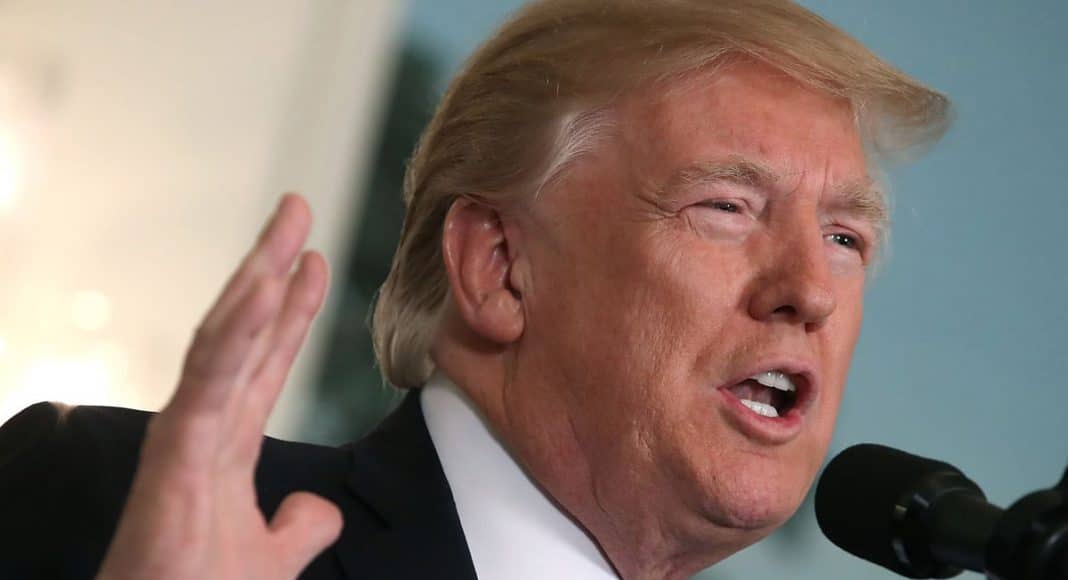It is said that the President’s budget is the clearest indication of an Administration’s policy priorities. An analysis of Trump’s proposal shows that a key priority of this White House is the escalation of the drug war. Enforcement and interdiction are back with a vengeance, and while more funding is proposed for treatment and prevention, these measures are overshadowed by a President who believes that being tough on crime is the way out of the overdose crisis.
Despite decades of failed drug policy and academic evidence showing that enforcement and incarceration are counterproductive approaches to drug policy, Trump has opted to provide more funding than ever for programs of this ilk. Under Trump’s plan, the Drug Enforcement Administration (DEA) – an agency synonymous with the drug war and plagued with scandals –receives almost $2.9 billion, around $400 million more than it received from Congress in 2017. Other drug enforcement programs also receive steep increases.
Trump’s approach contrasts sharply with the final year of the Obama administration where the President’s budget included more money for treatment and prevention than enforcement and interdiction for the first time. The Trump administration’s claim that it is requesting $13 billion to “combat the opioid epidemic” is misleading for two reasons. First, much of this money will be dedicated to enforcement and will do nothing to slow overdose deaths. Second, the amount may seem substantial, but it is eclipsed by a request of $18 billion to build a wall, showing where Trump’s priorities lie. Trump claims his wall will stop the flow of drugs, despite all evidence to the contrary. The reality is that the wall is an astonishing waste of money that serves only to stoke racial tensions and xenophobia.
The fingerprints of drug war hardliner Jeff Sessions are all over Trump’s budget. Sessions’ push for tougher sentencing for drug offenses has meant a need for more prison funding, and an internal memo leaked last month shows that Sessions is likely to increase the use of private prisons. A multi-million dollar grant program for law enforcement to do counternarcotic operations – the High Intensity Drug Trafficking Area (HIDTA) program – will move from ONDCP and be under the control of the DEA, which Sessions oversees. And the Sessions Justice Department, having recently revoked guidance allowing states to set their own marijuana policy, appears poised to dedicate part of its budget to cracking down on cannabis.
Trump’s attempts to take the country backwards on drug policy are best embodied by his attempts to revive Nancy Reagan’s “Just Say No” campaign, via $50m for an anti-drug media strategy. This is despite evidence that such campaigns may actually increase the likelihood of drug use among youth.
-
Related Story: Re-Criminalizing Cannabis Is Worse Than 1930s Reefer Madness
The silver lining is that the President’s Budget is merely a proposal, and ultimately Congress decides what is funded. In recent years, there has been a bipartisan consensus that the war on drugs has failed. Both parties have come together to work on marijuana reform, criminal justice reform, and to treat the opioid overdose crisis as a public health – not enforcement – challenge. Congress must continue on this path, and support initiatives that move us away from the war on drugs.
The Trump Budget is the President’s latest attempt to escalate the drug war. If fully approved, expect more mass incarceration and misery, particularly for communities of color. Instead, we must reject this approach, move away from this failed drug war model, and “just say no” to this budget.
Michael Collins is Deputy Director of Drug Policy Alliance’s Office of National Affairs and author of the forthcoming report: “Defunding the Drug War”.
This story originally appeared on the Drug Policy Alliance website.


